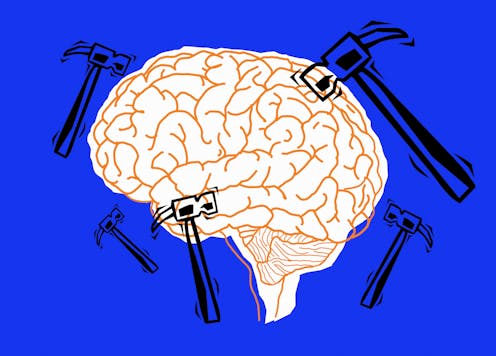New approach to teaching computer science could broaden the subject's appeal
- Written by Lauren Margulieux, Associate Professor of Learning Technologies, Georgia State University
 Language arts students can program chatbots for literary characters.shironosov/iStock/Getty Images Plus
Language arts students can program chatbots for literary characters.shironosov/iStock/Getty Images PlusDespite growing demand for computer science skills in professional careers and many areas of life, K-12 schools struggle to teach computer science to the next generation.
However, a new approach to computer science education – called integrat...
Read more: New approach to teaching computer science could broaden the subject's appeal









